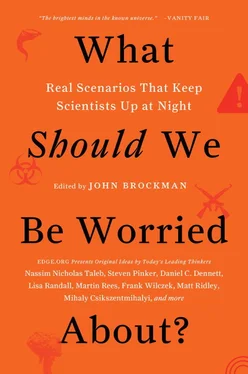Why is solitude so important, and why do we want to cultivate it in the young? Solitude is a precondition for creativity, but it is also where we find ourselves so that we can reach out and have relationships with other people, in which we really appreciate them as other people. So solitude is a precondition for conversation. If we aren’t able to be alone with ourselves, we are at risk of using other people as “spare parts” to support our fragile selves. One of the great tasks of childhood is to develop the capacity for this kind of healthy solitude. It is what will enable children to develop friendships of mutuality and respect.
Thus my worry for kindergarten-tech: The shiny objects of the digital world encourage a sensibility of constant connection, constant distraction, and never-aloneness. And if you give them to the youngest children, they will encourage that sensibility from the earliest days. This is a way of thinking that goes counter to what we currently believe is good for children: a capacity for independent play, the importance of cultivating the imagination, essentially developing a love of solitude because it will nurture creativity and relationship.
In our still recent infatuation with our mobile devices, we seem to think that if we are connected we’ll never be lonely. But in fact the truth is quite the opposite. If all we do is compulsively connect, we will be more lonely. And if we don’t teach our children to be alone, they will know only how to be lonely.
I worry that we have yet to have a conversation about what seems to be a developing “new normal”: the presence of screens in the playroom and kindergarten. When something becomes the new normal, it becomes hard to talk about, because it seems like second nature. But it’s time to talk about what we want childhood to accomplish.
JOHN NAUGHTON
Academic; journalist; vice-president, Wolfson College, Cambridge, U.K.; author, From Gutenberg to Zuckerberg: What You Really Need to Know About the Internet
What worries me is that we are increasingly enmeshed in incompetent systems—that is, systems that exhibit pathological behavior but can’t fix themselves. This is because solving the problems of such a system would require coordinated action by significant components of the system, but engaging in such action(s) is not in the short-term interest of any individual component (and may indeed be counter to its interests). So, in the end, pathological system behavior continues until catastrophe ensues.
A case study of an incompetent system is our intellectual property regime, a large part of which is concerned with copying and the regulation thereof. This regime was shaped in an analog world—in other words, an era in which copying was difficult, degenerative, and costly and in which dissemination of copies was difficult and expensive.
We now live in a digital world, in which copying is not only effortless, nondegenerative, and effectively free but is actually intrinsic to digital technology. What is a computer, after all, but a copying machine? Copying is to digital technology as breathing is to animal life; you can’t have one without the other. So trying to apply an IP regime designed for analog circumstances to a world in which all media and cultural artifacts are digital offends against common sense.
Everybody knows this, but the prospects of getting a solution to the problem are poor. Why? Because moving to a more rational IP regime would require concerted action by powerful vested interests, each of which has a stake in the status quo. They’re not going to move—which is why our IP regime is an incompetent system.
Even more worrying is the suspicion that liberal democracy, as currently practiced around the world, itself has become an incompetent system. The dysfunctional nature of legislative bodies, the banking and subsequent sovereign debt crisis, has revealed that the incompetence of democracies is a widespread problem. The inability—and unwillingness—of many Western governments to regulate their banks, coupled with the huge costs then unilaterally imposed on citizens to rescue commercial enterprises judged “too big to fail” has led to a widespread loss of trust in governments and a perception that even nominally “representative” democracies no longer produce administrations that serve the interests of their citizens.
DEMOCRACY IS LIKE THE APPENDIX
DYLAN EVANS
Founder & chief visionary officer, Projection Point; author, Risk Intelligence: How to Live with Uncertainty
Many people worry that there is not enough democracy in the world; I worry that we might never go beyond democracy.
In an influential essay published in 1989 and in a subsequent book, Francis Fukuyama claimed that liberal democracy was the final form of human government, the “end point of mankind’s ideological evolution.” Every country would eventually become democratic, and there would be no fundamental change in political organization from then on. This would be a shame, because there may be better forms of political organization that we can aspire to. But the spread of democracy may actually make it harder to discover these alternatives. To see why, we need to understand something that may at first appear counterintuitive. Democracy doesn’t give most people what they want; in fact, it leads to majority dissatisfaction. When Barack Obama won the 2012 election with 51 percent of the vote, for example, it wasn’t just the 49 percent who voted against him who were unhappy with the result. Most of those who voted for Obama were pretty disappointed too—because Obama ran on a platform that did not represent the ideal policy bundle of more than just a few voters. In every election, voters are forced to choose between a tiny selection of candidates, none of whom they particularly like. Everyone will be disappointed no matter which candidate wins, because nobody had a chance to vote for their ideal manifesto to begin with.
The reason for this lack of choice lies in the tendency of political parties to converge toward almost identical positions. This is a pervasive feature of modern democracies and tends to anchor society in the political middle ground. The resulting social stability has obvious advantages, in that it helps guard against political extremism. But it has less understood disadvantages, too. In particular, it hinders the development of better political systems.
Societies are complex systems, and like all such systems they can sometimes get stuck in suboptimal states. In biological systems, too, bad designs can persist despite their obvious disadvantages. A good example is the appendix. This organ used to play a part in our ancestors’ digestive process, but now it is useless and we’d be better off without it. It not only does us no good but also occasionally does harm. Hundreds of thousands of people are hospitalized each year for appendicitis in the United States alone, and several hundred die from it. So why hasn’t natural selection eliminated the appendix? Why does it still exist?
One intriguing suggestion, put forward by the evolutionary biologists Randolph Nesse and George Williams, is that the appendix persists because individuals with a smaller and thinner appendix are more vulnerable to appendicitis. So the normal tendency for useless organs to atrophy away to nothing is blocked, in the case of the appendix, by natural selection itself. Perhaps this idea will turn out not to be correct, but it does illustrate how the persistence of something can conceivably be explained by the very factors that make it disadvantageous.
Democracy is like the appendix. The very thing that makes majority dissatisfaction inevitable in a democracy—the voting mechanism—also makes it hard for a better political system to develop. The reforms that would be necessary to pave the way for alternative systems of governance lie well outside the safe middle ground of the median voter. Politicians advocating such reforms are unlikely, therefore, to be voted into office.
Читать дальше












